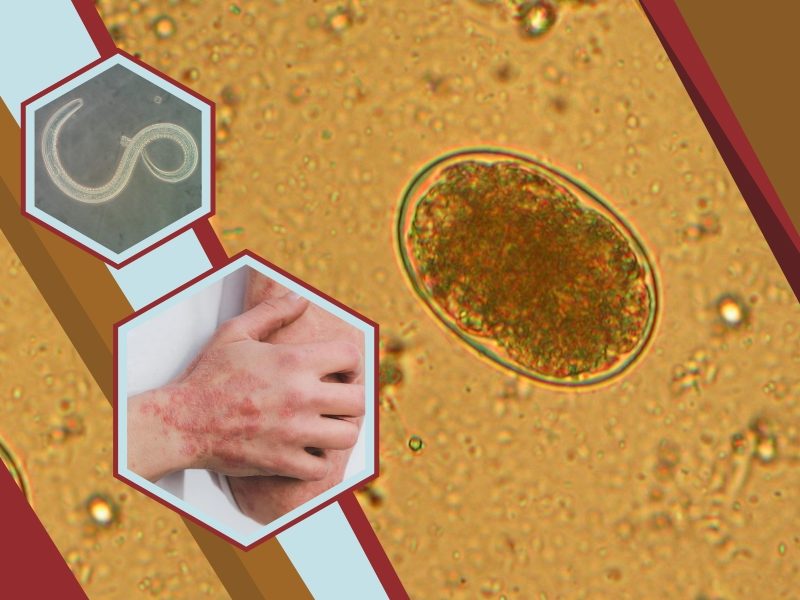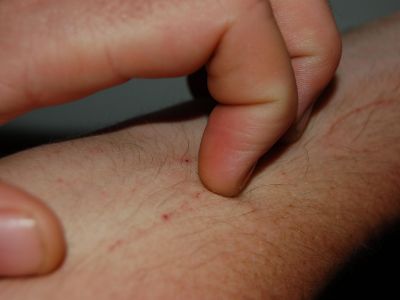Hookworm Infection Treatment

Hookworm infection is caused by roundworms. The disease affects the small intestine and lungs. Hookworms are parasites that live in the intestines of infected people. Hookworm eggs called larvae spread in the feces or poop of people with hookworm disease. Many people have no symptoms, but signs of a hookworm infection include fever, skin rash, stomach pain, and diarrhea.
Symptoms of Hookworm Infection
You might not have any symptoms of hookworm infection if you’re otherwise healthy, have a low parasite burden, and eat foods with plenty of iron. In general, symptoms of an infestation usually begin with itchiness and a small rash caused by an allergic reaction in the area where the larvae entered your skin. Hookworms usually cause diarrhea as they grow in your intestines.

Other symptoms include:
- Nausea
- A fever
- Abdominal pain
- Colic, or cramping and excessive crying in infants
- Intestinal cramps
- Blood in your stool
- A loss of appetite
- Itchy rash
Causes of Hookworm Infection and How Does It Affect You
There are two major types of hookworms that cause hookworm infection. It includes Necator americanus and Ancylostoma duodenale. The eggs of these hookworms end up on the ground after passing through human feces. They hatch into larvae, which stay in the soil until they have a chance to break through human skin.
After infected larvae enter through your skin, they travel through your body:
- They move through your blood vessels to your heart and then your lungs.
- You cough up the larvae from your lungs and swallow them.
- The larvae follow the digestive tract into the small intestine, where they attach to the walls, grow, and mature.
- Fertilized eggs leave your body in your stool to infect another host.
- The whole process can take two to three months. The worms can live in your body for two years or more.
Diagnosis for Hookworm Infection
Your health care provider will test a sample of your poop if you have symptoms of hookworm disease. They analyze the stool sample under a microscope to look for hookworm eggs.
If you have recently traveled to an area where hookworm is common, your health care provider may recommend blood tests. A complete blood count can show eosinophilia. This sign of hookworm disease can show up weeks before eggs are present in your stool.
Treatment of Hookworm Infection
If tests show that you have hookworm infection, your health care provider will prescribe medications that treat the infection.
Hookworm infections treatment options may include:
- No treatment: Your body may clear the infection on its own, but it could take a few years.
- Anthelmintic medicines: These medicines get rid of parasitic worms in the body. Common medications for hookworm infection include Mebendazole, Albendazole, and Pyrantel Pamoate. To treat infection by hookworm larvae, you can put the drug Thiabendazole on your skin or take medicine like Albendazole or Ivermectin by mouth.
- Supplements: Iron supplements can treat anemia from the infection. If you have anemia and malnutrition, your treatment will include nutrition support and other supplements, including folate.
- Hospitalization: Seldom, hookworms can cause severe anemia and congestive heart failure. For these cases, you may need treatment in a hospital.



